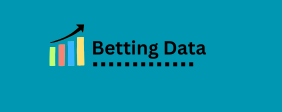Customization: Although the platform provides pre-built templates and features, you can still customize your store to suit your brand and business needs, such as changing colors, fonts, layouts, and adding or removing features. Hosting : This platform hosts your website and handles all the technical stuff like server management, security, and performance optimization. So you don’t have to worry about all these things yourself. Updates & Maintenance: software updates, bug fixes, and maintenance tasks. You don’t have to worry about your eCommerce site being out of date or having technical issues.
Scalability: SaaS eCommerce
Platforms are typically designed russia telegram data to scale with your business, whether it’s a startup or a rapidly growing one. Support: M ost SaaS platforms offer customer support to help you troubleshoot issues and get the most out of the platform. This support can come in the form of live chat, email support, help articles, and community forums. 10 Best Examples of eCommerce SaaS Platforms Example of an eCommerce SaaS Platform Currently, there are many SaaS eCommerce platforms available to support online businesses. Almost all of them offer the best features and promise to skyrocket business sales.
Here are 10 examples of
SaaS eCommerce platforms that we recommend you try: 1. Shopify Shopify is one of the world’s largest SaaS eCommerce platforms, powering over four million online stores. It offers a content management system, 24/7 customer support, headless functionality, and integrates with over 6,000 apps on the Shopify App Store. 2. Dokan Cloud Dokan Cloud is one example of an eCommerce SaaS platform to easily create a multi-vendor marketplace online. The platform offers a variety of benefits for businesses looking to build or grow their online presence. One of its main advantages is its ease of use.
Although it is a new
SaaS platform, the WordPress impact of sustainable marketing plugin version of Dokan Cloud has been around for a while. It features an intuitive interface, a ready-to-use reporting system, and marketplace and store SEO enhancements. 3. BigCommerce BigCommerce is a large SaaS provider that supports small and medium-sized businesses. BigCommerce offers four plan options: Standard, Plus, Pro, and Enterprise. The platform combines the benefits of SaaS with the flexibility of customization through open APIs. This allows businesses to seamlessly integrate with external applications and customize their online stores to unique needs. 4.
Wix Wix is a versatile
SaaS platform known for its singapore data easy-to-use website builder tools and extensive customization. With Wix, your business can create an attractive online store with drag-and-drop functionality and a variety of professional templates. Wix hosting is claimed to be free and secure. In addition, this SaaS platform offers eCommerce features, such as product management, inventory tracking, and secure payments. 5. Adobe Commerce (Magento) Adobe Commerce is the new name for Magento, a self-hosted SaaS-based e-commerce platform for large enterprises and businesses that need extensive customization and scalability. Adobe Commerce supports Progressive Web Apps (PWA), emphasizing security, performance, and flexibility, making it suitable for high-volume businesses with unique needs.

